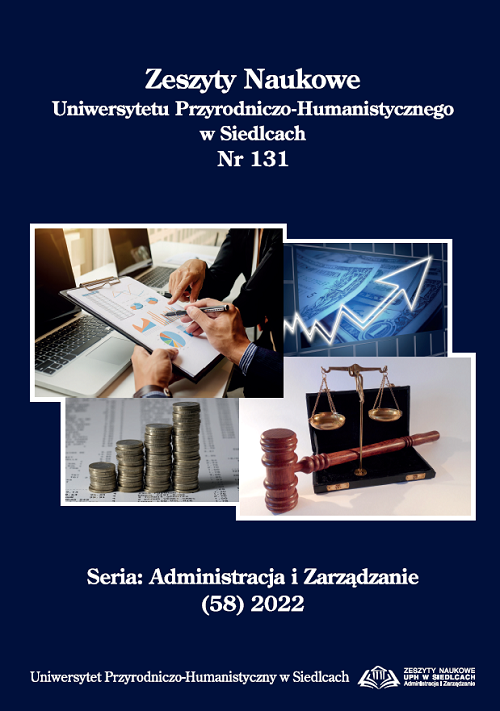THE USE OF PARTICULAR TOOLS OF MANAGEMENT ACCOUNTING IN BASIC UNITS OF LOCAL GOVERNMENT
DOI:
https://doi.org/10.34739/zn.2022.58.04Keywords:
commune , rationality, task-based budget , cost accounting, management accountingAbstract
Presently, local Polish government units, including communes, function in the conditions of a limited amount of financial resources and, at the same time, unlimited social needs. Therefore, it is necessary to carry out activities aimed at the rationalization of the management of public funds. It has become essential to undertake in-depth analyzes of activities undertaken by municipalities and to identify costs that were actually incurred for the tasks. Local government units, like other entities, should function in accordance with the principles of efficiency and effectiveness. Unfortunately, this is often overlooked by their managers. Performing the tasks entrusted to them, they focus their attention on spending funds in accordance with the limit, without considering the fact if a given expenditure will bring a specific effect and whether the task will be effectively performed. In order to change this method of operation, municipalities should implement modern management methods and use management accounting tools. The introduction of, among other things, task-based budgeting and cost accounting will contribute to a more effective use of available resources. The aim of the article is to examine the extent to which communes in the Ostrołęka and Siedlce subregions use selected management accounting tools. In order to achieve this goal, a questionnaire survey was carried out for the treasurers of communes. The obtained results prove the negligible use of management accounting tools by the audited entities.
Downloads
Downloads
Published
How to Cite
Issue
Section
License
Copyright (c) 2022 Zeszyty Naukowe UPH seria Administracja i Zarządzanie

This work is licensed under a Creative Commons Attribution-NonCommercial-NoDerivatives 4.0 International License.




